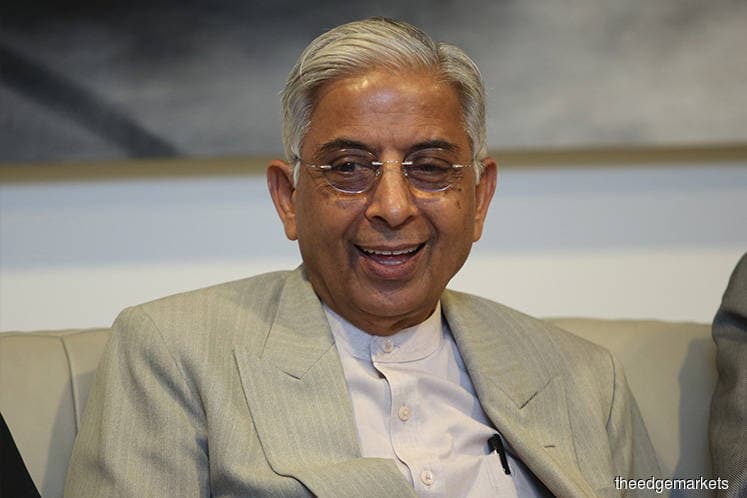
This article first appeared in The Edge Financial Daily on August 16, 2018
KUALA LUMPUR: Malaysia’s “judicial winter has not yet fully thawed” in the 30 years after the 1988 crisis, constitutional expert Emeritus Professor Datuk Dr Shad Saleem Faruqi said yesterday.
The judiciary, he said, continued to be plagued with fundamental issues affecting judicial independence and impartiality.
“The picture is mixed. There are currents and cross-currents. However, now and then, there are warm rays of light that give hope that summer is nigh,” Shad said when delivering the 5th Raja Aziz Addruse Memorial Lecture, focusing on the 30th anniversary of the 1988 judicial crisis.
The event, held in conjunction with the International Malaysian Law Conference, was attended by some 500 lawyers and judges including Chief Justice Tan Sri Richard Malanjum
Despite the country still recovering from the unprecedented crisis that saw the removal of then Lord President Tun Salleh Abas, Shad said: “Not all is lost, however.”
“We have many activists, liberal and dynamic judges who give life to the law by reading it in the light of constitutional ideals,” he added.
Assessing the legal developments since the crisis, Shad said a mature and fair evaluation is “not really possible” as the judiciary has delivered thousands of judicial decisions, some of which are admirable and some forgettable.
“The 1988 judicial crisis gave birth to a number of other shameful tendencies in the judiciary that are too painful to acknowledge,” he said.
Shad also took a jab at “some racial and religious bigots” for disregarding the federal constitution in questioning the appointment of Malanjum as the country’s first non-Muslim chief justice recently.
Shad also lambasted the discretion exercised by a former prime minister in blocking the promotion of two distinguished and independent-minded judges: Justice Tan Sri Abdul Malek Ahmad and Justice Datuk Seri Mohd Hishamudin Yunus.
“In the matter of promotion, there are regrettably no guiding principles. Seniority and legal acumen do not count,” he said.
Shad highlighted a judge, elevated to the Court of Appeal and later to the Federal Court, but had neglected his fiduciary duty of writing judgements for 35 cases.
“It is only once in a while that the Conference of Rulers is able to block an improper appointment or promotion of a malleable judge,” he noted.
As for the composition of judges, Shad said he regrets the massive imbalances in the country’s superior courts, noting Malay judges constitute the bulk of the justices.
“An inclusive judiciary with a racial, religious, regional and gender balance is likely to arouse confidence in its ability to deliver justice fairly and impartially,” he said,
According to an early 2018 data, Shad said Malays constituted 84.6% of judges in the Federal Court, 76% in the Court of Appeal and 74% in the two High Courts.
On race and religion, Shad said: “There is now a predictability about most judicial decisions and the theories of “jurimetrics” need not be employed to foresee some results.”
“Since the Islamisation wave of the ‘80s, some judges have found it fashionable to subordinate their duty to uphold the constitution to their race or religion,” he added.